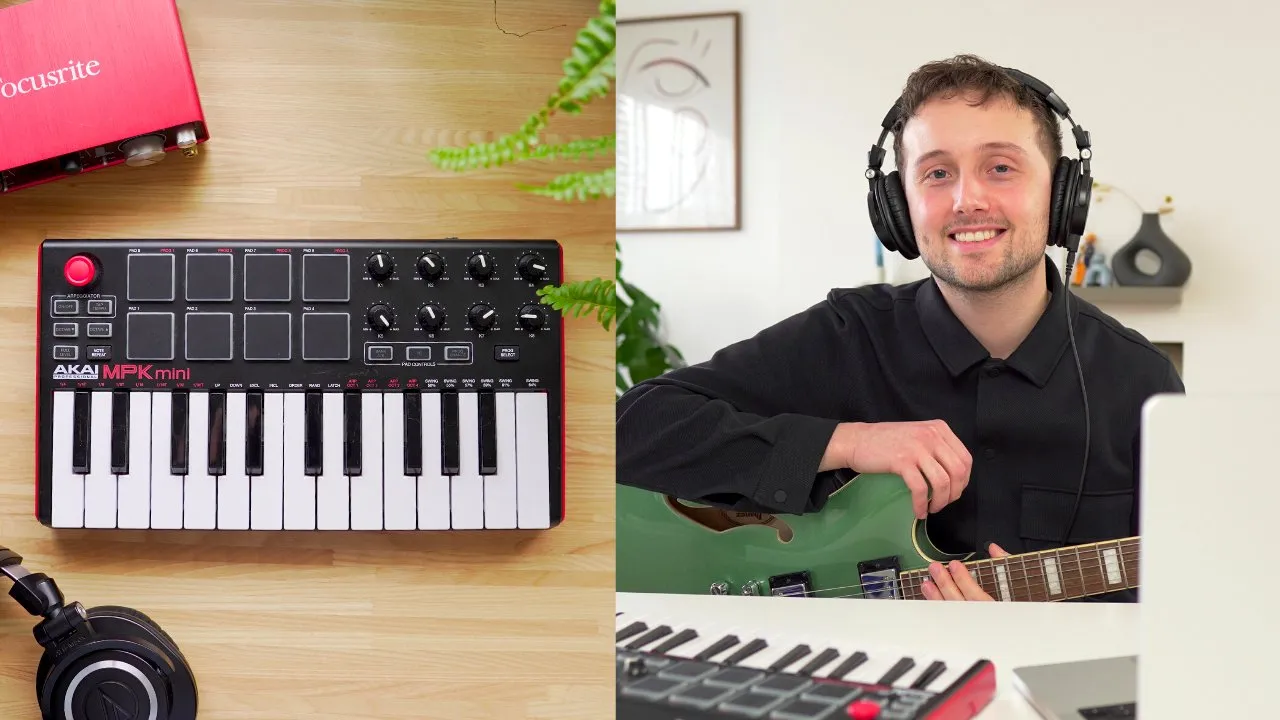
Loop: Repetition and Variation in Music 
Get a comprehensive overview of Loop: Repetition and Variation in Music ▼
ADVERTISEMENT
Course Feature
![]() Cost:
Cost:
Free
![]() Provider:
Provider:
Kadenze
![]() Certificate:
Certificate:
Paid Certification
![]() Language:
Language:
English
![]() Start Date:
Start Date:
On-Demand
Course Overview
❗The content presented here is sourced directly from Kadenze platform. For comprehensive course details, including enrollment information, simply click on the 'Go to class' link on our website.
Updated in [May 19th, 2023]
This course, Loop: Repetition and Variation in Music, examines the art of creating music while using minimal musical material. Students will explore various compositional techniques and styles, such as minimalism, ambient, alternative, musique concréte, popular, independent, experimental and sample based music. Through aural analysis, class discussion and readings, students will learn to critically engage with a piece of music and analyze or break down music compositions to determine structural form and construction. Short composition assignments (1-2 min) will be turned in as audio files, and a single composition of 5-10 minutes will act as the final project. By the end of this course, students will be able to compose an engaging piece of music, adapt compositional principles to their own music, and discover new approaches to music composition.
[Applications]
Students who have completed this course can apply their knowledge to their own music by using minimalism and variation techniques to create engaging compositions. They can also use their understanding of form and structure to analyze and break down existing music compositions. Additionally, they can use their knowledge of compositional principles to adapt and create new approaches to music composition.
[Career Paths]
Job position paths recommended for learners of this course include:
1. Music Producer: Music producers are responsible for overseeing the production of music recordings. They are responsible for selecting and hiring musicians, selecting and arranging songs, and ensuring that the recordings are of the highest quality. Music producers must have a strong understanding of music theory, composition, and production techniques. As the music industry continues to evolve, music producers must stay up to date with the latest trends and technologies.
2. Music Composer: Music composers are responsible for creating original music for a variety of media, including film, television, video games, and live performances. They must have a strong understanding of music theory and composition techniques, as well as the ability to create music that is both emotionally engaging and technically sound. As technology continues to evolve, music composers must stay up to date with the latest trends and technologies.
3. Music Educator: Music educators are responsible for teaching music theory, composition, and performance to students of all ages. They must have a strong understanding of music theory and composition techniques, as well as the ability to effectively communicate their knowledge to students. As the demand for music education continues to grow, music educators must stay up to date with the latest trends and technologies.
4. Music Arranger: Music arrangers are responsible for arranging existing music for a variety of media, including film, television, video games, and live performances. They must have a strong understanding of music theory and composition techniques, as well as the ability to create arrangements that are both emotionally engaging and technically sound. As technology continues to evolve, music arrangers must stay up to date with the latest trends and technologies.
[Education Paths]
The recommended degree paths for learners of this course include:
1. Bachelor of Music: This degree provides students with a comprehensive understanding of music theory, composition, and performance. It also covers topics such as music history, music technology, and music business. Developing trends in this degree path include the use of technology in music production, the rise of independent music, and the increasing importance of music streaming services.
2. Master of Music: This degree is designed for students who want to specialize in a particular area of music. It covers topics such as music theory, composition, performance, and music technology. Developing trends in this degree path include the use of artificial intelligence in music production, the emergence of new music genres, and the increasing importance of music streaming services.
3. Bachelor of Arts in Music: This degree provides students with a comprehensive understanding of music theory, composition, and performance. It also covers topics such as music history, music technology, and music business. Developing trends in this degree path include the use of technology in music production, the rise of independent music, and the increasing importance of music streaming services.
4. Master of Arts in Music: This degree is designed for students who want to specialize in a particular area of music. It covers topics such as music theory, composition, performance, and music technology. Developing trends in this degree path include the use of artificial intelligence in music production, the emergence of new music genres, and the increasing importance of music streaming services.
Course Provider

Provider Kadenze's Stats at AZClass
Discussion and Reviews
0.0 (Based on 0 reviews)
Explore Similar Online Courses

Audacity Professional Vocals for Courses Video & More Part 1

AP Environmental Science - Part 3: Pollution and Resources

Python for Informatics: Exploring Information

Social Network Analysis

Introduction to Systematic Review and Meta-Analysis

The Analytics Edge

DCO042 - Python For Informatics

Causal Diagrams: Draw Your Assumptions Before Your Conclusions

Whole genome sequencing of bacterial genomes - tools and applications

Orchestral Music Composition & Music Theory for Video Games

Music Theory for Songwriters: From Beginner to Producer

Music Theory Level 1: Part Five
 Related Categories
Related Categories
 Popular Providers
Popular Providers
Quiz
 Submitted Sucessfully
Submitted Sucessfully
1. What is the main focus of this course?
2. What is the assessment for this course?
3. What is the length of the final project?


Start your review of Loop: Repetition and Variation in Music